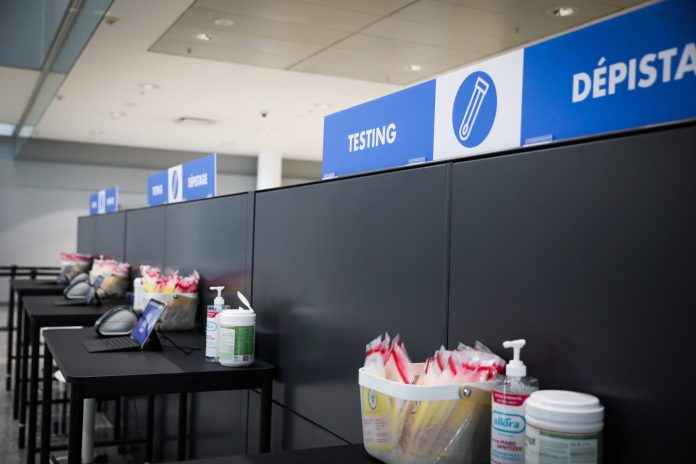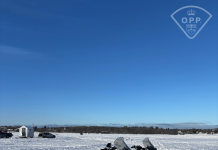The Government of Canada set up entry restrictions, testing, and quarantine requirements to manage risks at the border. Testing was and remains an important part of our surveillance program to track the importation of COVID-19 virus into Canada and identify new variants of concern.
The Government of Canada had paused mandatory random testing for those entering Canada by air on June 11, 2022, as part of a broader strategy to transition testing for air travellers outside of the airports.
Mandatory random testing will resume as of July 19, 2022, for travellers who qualify as fully vaccinated, arriving in Canada by air to the four major Canadian airports—Vancouver, Calgary, Montreal and Toronto. To qualify as a fully vaccinated traveller to Canada, travellers must have been vaccinated with a primary series of a COVID-19 vaccine accepted by the Government of Canada for the purpose of travel at least 14 calendar days before entering Canada.
All testing for air travellers, for both those who qualify as fully vaccinated and partially or unvaccinated people, will be completed outside of airports, either via an in-person appointment at select testing provider locations and pharmacies, or a virtual appointment for a self-swab test. Travellers who do not qualify as fully vaccinated, unless exempt, must continue to test on Day 1 and Day 8 of their mandatory 14-day quarantine.
Moving testing outside of airports will support testing for travellers arriving by air while still being able to monitor and quickly respond to new variants of concern, or changes to the epidemiological situation. Mandatory random testing continues at land border points of entry, with no changes.
Border testing is an important tool in Canada’s detection and surveillance of COVID-19 and has been essential in helping us slow the spread of the virus. Data from the testing program are used to understand the current level and trends of importation of COVID-19 into Canada. In addition, these data have and continue to inform the Government of Canada’s safe easing of border measures.
Air travellers who qualify as fully vaccinated and who are selected for mandatory random testing, as well as air travellers who do not qualify as fully vaccinated, will receive an email notification within 15 minutes of completing their customs declaration. The email will contain information to help them arrange for their test with a testing provider in their region. Unvaccinated travellers can complete their tests by a virtual appointment or an in-person appointment with the test provider at their store or at select pharmacies and still respect their quarantine requirements.
All travellers must continue to use ArriveCAN (free mobile app or website) to provide mandatory travel information within 72 hours before their arrival in Canada, and/or before boarding a cruise ship destined for Canada, with few exceptions. It is the fastest, easiest and most secure way for travellers to show they meet public health requirements. Additional efforts are being undertaken to enhance compliance with ArriveCAN, which is already over 95% for travellers arriving by land and air combined.
All vaccinated travellers who are randomly selected for the border testing surveillance program must complete arrival mandatory testing requirements.
If your arrival test result is positive, you must go into isolation and follow the federal requirement to isolate for 10 days from the date of the test result. Your 10-day isolation is required, even if the isolation requirement is shorter in your province or territory.
Mandatory random testing and information in the ArriveCAN app are necessary tools that help inform public health advice to protect the health and safety of Canadians.








